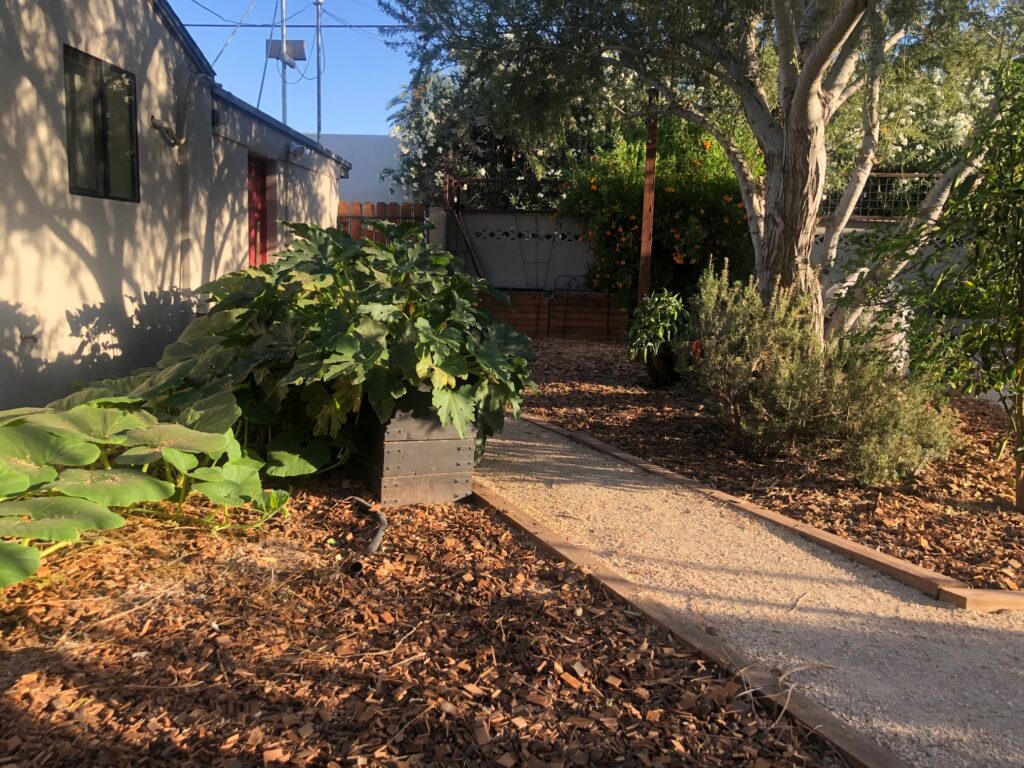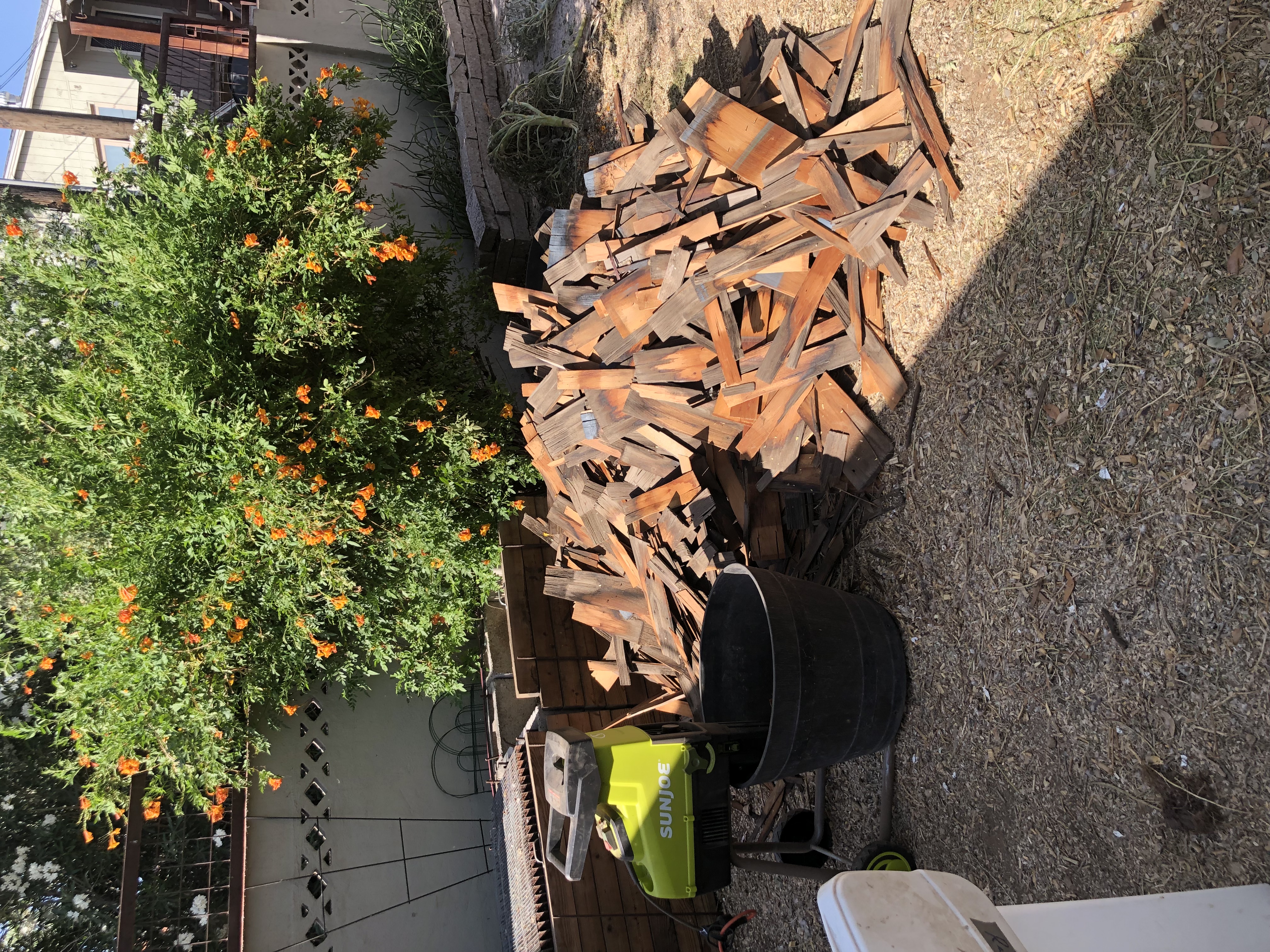Free Chips
You never know what you can find right under your nose. Well, in this case the cedar wood shingles on my neighbor’s roof, which now serve as a beautiful ground cover in my garden as wood chips.
First, do you know that cedar wood chips are not only helpful in keeping bugs away from your plants, but that they are really expensive? They are the Cadillac of ground cover for gardeners.

It so happened that my next door neighbors were renovating their guest house, which had an old cedar shake roof. It was not in great shape after probably 50 years up there, to the point that a strong wind would sometimes blow an old shingle or two in to my yard.
Being a total recycling/composting nerd-ball, I was eye-balling that roof for years. I knew from speaking with roofers and reading a bunch of articles that the shingles are non-toxic, assuming they are treated with things like linseed oil. Local roofers told me that typically in Phoenix they are.
I have a small garden wood chipper to manage the huge ironwood tree that provides shade to my garden. I hatched a plan, a scheme, a vision.
My neighbors were generous enough to tell their roofers to give me some of the shingles, rather than sending them to the dump. With only about 1/4 of the shingles from that guest house, I covered most of my back garden area.
I could have used more, but I only have so much time.
I didn’t use them in the planter boxes. Not because the cedar wood chips are toxic, but that wood chips can actually pull nutrients away from plants as they break down. But, it is still wise to play it safe unless you are pretty certain the shingles have not been treated with toxic stuff to only use them around non-edible plants.
It looks great back there and even my friend Greg Patterson of The Urban Farm gave me his stamp of approval.
As I stood there with my little wood chipper, I thought what a great “circular economy” business it could be for somebody in town with a wood chipper, a truck and contacts with roofers and urban gardeners.
Well, a bigger wood chipper than I have, that is.
It is a great way to keep wood out of the landfills, where the anaerobic conditions just make methane, which is 80x more harmful to the earth than CO2.
And, by my estimate, I probably got anywhere from $400 to $600 worth of good wood chips for only the cost of my own labor.
Which brings me to this important question. Do the British call them “wood crisps?”



